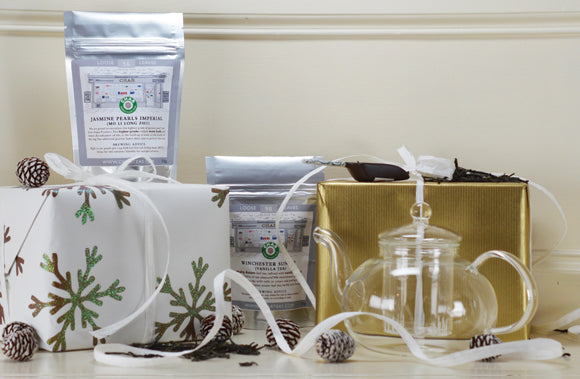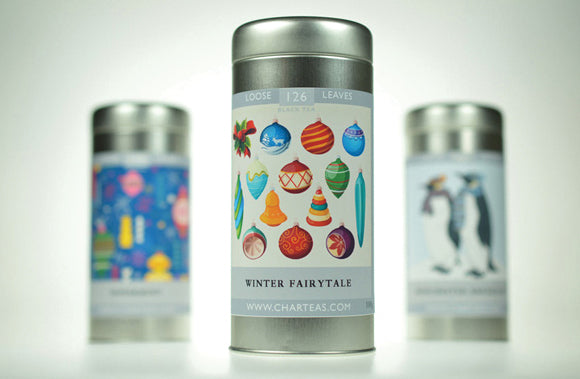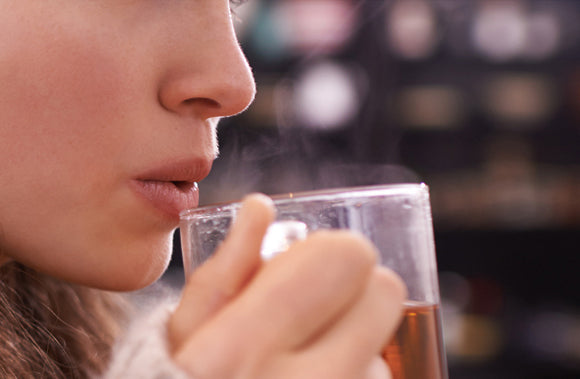
What are the Differences in Black Tea Types?
Typically, though not exclusively, a black tea’s name will refer to its origin of growth.
Indian Black Teas
Darjeeling
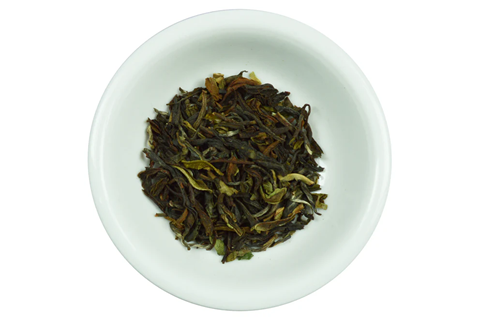
The tea variety Camellia Sinensis Sinensis – the Chinese variety of the plant – took well to the soil, humidity, and altitude offered by Darjeeling hills. However, the tea produced here seemed to obtain a different taste profile to the Chinese tea that people were familiar with – its non-astringency and floweriness was preserved from the Chinese plant, but the conditions in Darjeeling gave this tea a sweetness that had not been seen before in a black tea. Darjeeling tea gained popularity in its own right as time went on, and has gained a high status as ‘the champagne of teas’.
Explore our Darjeeling teas here.
Assam
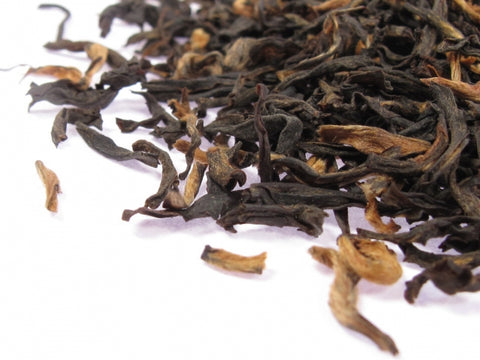
A second variety of the tea plant was discovered in Assam – one with larger, broad leaves. This variety (Camellia Sinensis Assamica) was found to be delightfully earthy and malty, but quite bitter, and so it was consumed with milk, sugar, and sometimes spices. Assam tea gained popularity in the UK, however, and the practise of taking tea with milk and sugar persists to this day because of this wonderful, strong tea.
Kerala
Kerala tea is beautiful even without milk, and may be used for Sulaimani chai – a digestive spiced tea which is drunk without milk. Tea from this region features in many of our blends, adding its beautiful lightness. We love it so much that we have included tea from this region in our English Breakfast Tea.
Nilgiri
As with Kerala tea, tea grown in the Nilgiri hills is sweet and light whilst maintaining a full-bodied presence and can be enjoyed without milk. This makes it a perfect base for our light and refreshing Winchester Earl Grey.
Sri Lankan Black Teas
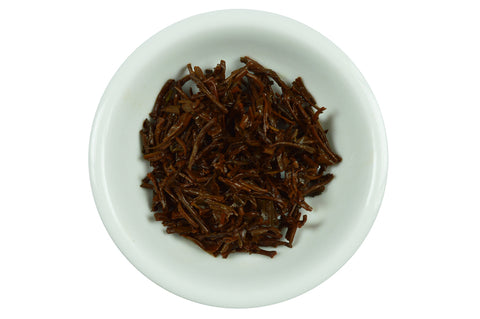 Despite the name of the country changing in 1972, we still refer to tea from Sri Lanka as Ceylon tea. Ceylon teas are well-loved here in England (and all around the world) for their refreshing, bright, and crisp flavour. You will find Ceylon tea as the basis of most Earl Grey teas, as its slight citrus qualities lend this tea well to being perfumed with bergamot.
Despite the name of the country changing in 1972, we still refer to tea from Sri Lanka as Ceylon tea. Ceylon teas are well-loved here in England (and all around the world) for their refreshing, bright, and crisp flavour. You will find Ceylon tea as the basis of most Earl Grey teas, as its slight citrus qualities lend this tea well to being perfumed with bergamot.
Explore our Sri Lankan teas here.
Indonesian Black Tea
Sumatra tea provides a strong, high-quality base for many of our customers’ absolute favourite teas such as Lady Winchester and Classic Chai.
Kenyan Black Tea
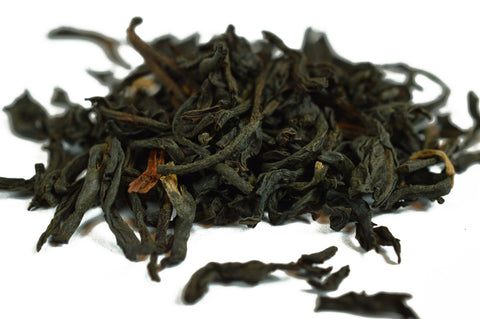
High quality Kenyan tea is quite difficult to come by in the UK, and our Char Kenya Supreme is a firm favourite amongst our customers for its full-bodied, fruity, and slightly spicy qualities. For these reasons, many fans of Assam tea will also love Kenyan tea.
Chinese Black Teas (Red Teas)
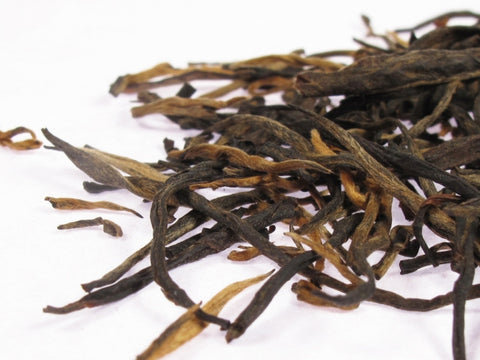
In China, what we refer to as ‘black tea’ is known as ‘red tea’ due to the colour it turns in the cup rather than the colour the leaves turn in the oxidation process. Chinese black teas are light and refreshing, and as they are often produced from the Camellia Sinensis Sinensis – the same variety of tea leaf as green teas – they are non-astringent. This makes them ideal for anyone who does not want to have milk in their tea, but still wants the flavour profile of a black tea.
Nepalese Black Tea
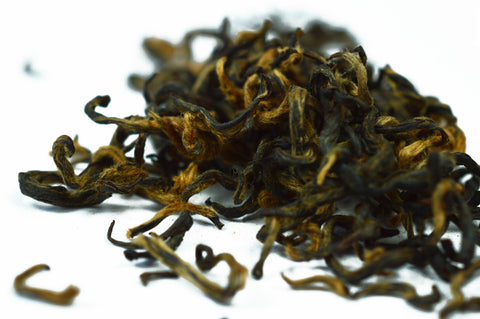
Teas from Nepal are sophisticated and understated. These are teas any black tea connoisseur would be grateful to have in their cupboard. In particular, our Himalayan Gold & Honey is a beautiful example of the balance of sweet and spicy qualities that are found exclusively in Nepalese teas, and will make you pause to savour each sip.
Order the Best Black Teas Online at Char Teas
As you can see, there is a lot of variation in flavour profiles for black teas depending on the region of origin, its weather and climate conditions, altitude, and how the tea itself is processed. Our advice is to explore these thoroughly, and keep a log of what you enjoy about each tea. Through this, you will discover patterns in what flavour profiles you enjoy most. If ordering online, you can specify in your order notes that you wish to explore black teas, and our Char team can then select two free black tea samples for you to try!

 Assam
Assam
 Black
Black
 Breakfast
Breakfast
 Caffeine Free
Caffeine Free
 Ceylon
Ceylon
 Cold Brew
Cold Brew
 Darjeeling
Darjeeling
 Decaffeinated
Decaffeinated
 Earl Grey
Earl Grey
 Favourites
Favourites
 Flavoured
Flavoured
 Flowering
Flowering
 Fruit
Fruit
 Green
Green
 Herbal
Herbal
 Jasmine
Jasmine
 Mate
Mate
 Oolong
Oolong
 Organic
Organic
 Pu Erh
Pu Erh
 Rooibos
Rooibos
 Scented
Scented
 Smoked
Smoked
 Sparkling
Sparkling
 White
White
 Winchester
Winchester
 Loose Tea
Loose Tea
 Tea Bags
Tea Bags
 Gift Caddies
Gift Caddies
 Teapots
Teapots
 Accessories
Accessories
 Tea Tins
Tea Tins
 Storage
Storage
